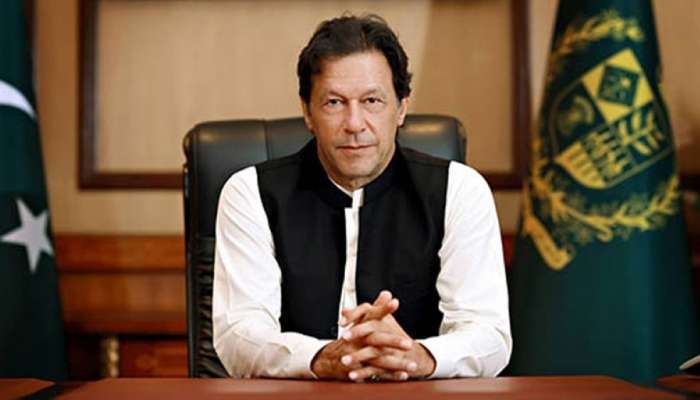
Islamabad: Pakistan Prime Minister Imran Khan is hopeful of having a debate live on television with his Indian counterpart Narendra Modi to resolve once and for all the troubles that have plagued both nations since they gained independence in 1947.
In an interview with Russian TV channel RT, ahead of his trip to Russia, Prime Minister Khan explained how he would ideally aim to defuse cross-border tensions with his larger neighbour to the east.
“I would love to debate with Narendra Modi,” he said. “It would be so good for over a billion people on the subcontinent, if we can resolve our differences through a debate.
“I am not a believer in military conflicts; I believe that civilized societies resolve their conflicts through dialogue, and the countries that rely on military conflict have not studied history properly,” he added.
“When my party came into power in 2018, the first thing I did was to reach out to India. I told them, our only issue is Kashmir, let’s sit down on the table and resolve it…let’s have a roadmap,” explained Khan. “Remember, I am the one who knows India better than anyone, because you know, cricket is a passion in the subcontinent. Because of me being the captain of cricket here, and playing over 10 years of cricket against India, I know India better than most people, so I immediately reached out.”
During his interview, he spoke about how geopolitical decisions Pakistan made decades ago were now reverberating across his country, negatively affecting his and previous governments’ efforts to lift their people out of poverty.
“When the Cold War was ravaging the whole of the world, the world was divided into blocs,” he recalled. “Pakistan moved in with the United States – we became part of the bloc in the Cold War with the US. India actually stayed neutral but it was very close to the Soviets. Now, when I look back, I think initially, Pakistan needed help because when we became independent, we were impoverished, there were millions of refugees in Pakistan, we needed help.
“But, you know, beyond 10 years or so, we should have been a non-aligned, independent country [that] stood on our own feet…not relied on aid,” he added. “We became part of a bloc because we got foreign aid. When you look back, foreign aid is a curse for a country, because you do not fix your own systems, you do not raise your revenues, you do not increase your exports, you rely on handouts, and it stops a country evolving and developing and becoming self-reliant.”
Khan was of the opinion that world being divided into Cold War blocs, and Pakistan becoming part of a bloc stopped his people from developing as a country.
“You learn from history, you learn from mistakes…you cannot move forward in life until you learn from your mistakes,” he explained. “What we want to do now is not become part of any bloc. We want to have trade relationships with all countries.
“We have suffered: India became a hostile country so trade between them was minimal,” added the prime minister. “Iran had sanctions, so with them, we couldn’t trade on the western side. Afghanistan has 40 years of conflict so we couldn’t go north and then to Central Asia. We couldn’t go to Central Asia because we became part of the US bloc, and Central Asia was part of the Soviet bloc.
“What we want now is trade with everyone,” he revealed. “What is the purpose behind it? To raise our people out of poverty. That is [what] any head of state’s focus should be…how do you raise people out of poverty?”
To further explain how trade with Pakistan’s neighbouring countries would help the region develop and grow as a whole, Khan pointed to the benefits reaped by members of the European Union, once they joined the organisation.
“Regions develop…countries don’t develop in isolation,” he explained. “I was in university in England when the European Union came into being, and then the whole area’s standard of living went up. We hope that sanctions are lifted on Iran…you know, we are short of gas here, and with Iran, it is the cheapest gas we can get. Similarly, we hope that [with] India one day.”